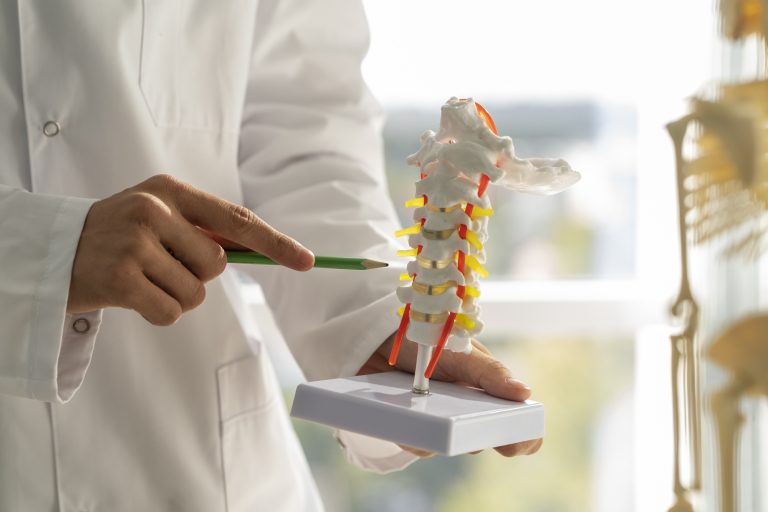Osteoporosis is often called a “silent disease” because it progresses without symptoms until a fracture occurs. Most people associate it with hip or wrist fractures, but osteoporosis can severely affect the spine. As a spine surgeon, I often see patients unaware of how fragile their spine becomes due to osteoporosis-related bone loss. This blog explains osteoporosis’ impact on your spine and how to prevent and manage it effectively.
What Is Osteoporosis?
Osteoporosis causes bones to become brittle and fragile due to bone mass loss or insufficient new bone creation. This porosity weakens all bones but especially affects spinal vertebrae, which support your body’s stability.
How Osteoporosis Affects the Spine
Our spine consists of vertebrae that rely on dense, strong bones for support. Osteoporosis weakens those vertebrae, making them prone to compression fractures. These fractures can collapse vertebrae, leading to:
-
A hunched posture known as a “dowager’s hump”
-
Sudden or chronic back pain
-
Decreased mobility, affecting daily activities
-
Nerve compression causing numbness or weakness
Risk Factors for Spinal Osteoporosis
Certain factors increase your risk:
-
Age over 50, especially postmenopausal women
-
Smaller bone structure and lower estrogen in women
-
Family history of osteoporosis or fractures
-
Lack of physical activity and poor nutrition
-
Smoking and excessive alcohol intake
-
Medical conditions and medications like corticosteroids
Symptoms of Spinal Osteoporosis
Osteoporosis may progress quietly, but watch for:
-
Sudden back pain without clear injury
-
Loss of height over time
-
Rounded upper back or kyphosis
-
Difficulty bending or twisting comfortably
Protecting Your Spine from Osteoporosis
You can lower risk and strengthen your spine with the right approach:
Increase Calcium & Vitamin D Intake
Consume calcium-rich foods (milk, leafy greens) and ensure adequate vitamin D from sunlight or supplements.
Engage in Weight-Bearing Exercises
Activities like walking, jogging, and strength training improve bone density and muscle strength, enhancing spine support.
Quit Smoking & Limit Alcohol
Both smoking and heavy drinking accelerate bone loss. Quitting and moderating intake protect your bones.
Consider Bone Density Testing
DEXA scans help identify bone loss early, so you can take timely action.
Medications
If diagnosed, medications like bisphosphonates or hormone therapy can slow bone loss and build strength.
Treatment for Osteoporosis-Related Spinal Fractures
If fractures occur, options include:
-
Physical therapy and bracing
-
Pain management
-
Minimally invasive surgeries like vertebroplasty or kyphoplasty
Osteoporosis significantly impacts spine health, but you can take steps to strengthen your bones and prevent fractures. Stay active, eat well, and seek specialist care if at risk. A healthy spine supports a better quality of life.



